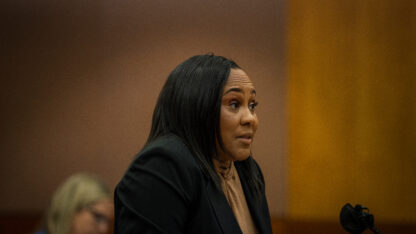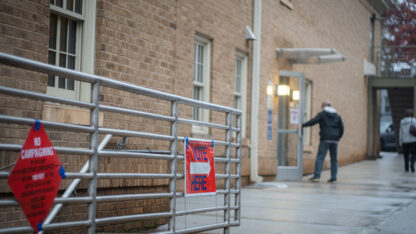Georgia couple awarded $135.5M for polluted land and water

A federal jury has awarded a Georgia couple $135.5 million for damages to their property by a Tennessee-based solar company and its contractor.
The award against Silicon Ranch Corp. and its contractor, IEA Inc., was announced Friday by James E. Butler, attorney for plaintiffs Shaun and Amie Harris who live near Lumpkin, Georgia, south of Columbus, WRBL-TV reported.
According to the lawsuit, Silicon Ranch Corp. has developed more than 160 solar panel facilities across the country, many of which were built by IEA. At “Lumpkin Solar,” IEA cleared and mass-graded about 1,000 acres of timberland, farmland and land near the Harris couple that was previously used for recreational hunting and fishing — without installing adequate measures for erosion and sediment control, Butler said in a news release.
“The result was what one would expect — when it rained, pollution poured downhill and downstream onto the neighbors’ property, inundating wetlands with silt and sediment, and turning a 21-acre trophy fishing lake into a mud hole,” Butler said.
The companies “created, operated and maintained a nuisance … that caused sedimentation to pollute plaintiffs’ wetlands, streams and lake. The court further finds that this nuisance has continued for approximately two years unabated,” U.S. District Judge Clay D. Land said in the order.
The jury returned a compensatory damage verdict of $10.5 million.
In the punitive phase, where jurors consider an amount that would punish the companies for their actions, the panel found that SRC, IEA and and an IEA subsidiary — IEA Constructors, LLC — acted with specific intent to cause harm. The jury imposed $25 million in punitive damages against SRC, $50 million against IEA Inc., and $50 million against IEA Constructors, LLC, the news release said.
Westwood Professional Services Inc., the engineering firm that designed the erosion and sediment control plan for SRC and IEA, was released from any liability, the law firm said.
“The SRC/IEA litigation and trial strategy was to blame everyone else and deny responsibility,” said plaintiffs’ counsel, Dan Philyaw. “They blamed Westwood, they blamed Shaun and Amie, they blamed too much rain, and they blamed ‘erodible soils.’”
“Meanness is not neighborly,” Butler said in summarizing the case, “and it is a terrible litigation and trial strategy.”
Silicon Ranch, located in Nashville, Tennessee, said in a statement emailed to The Associated Press that it would appeal the verdicts.
“We relied on our contractor to carry out this scope of work in compliance with applicable law and in keeping with industry best management practices, as specified by the appropriate regulatory bodies in the state of Georgia,” the company said.
“As the long-term owner of this facility, Silicon Ranch remains committed to the continued success of Stewart County and the surrounding region,” the company continued. “While we sincerely regret the unintentional damage to our neighbor’s property, Silicon Ranch does not believe the verdict in this trial is supported by the facts in this case.”







